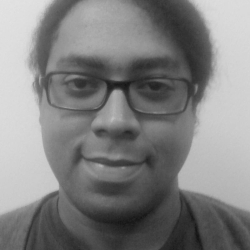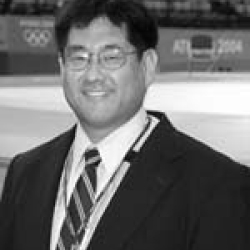Social, Personality, and Affective Science Psychology Graduate Concentration
The Social, Personality, and Affective Science (SPA) graduate concentration at San Francisco State University prepares students for professional careers in research, teaching, and practical applications of social psychology at the Master of Arts level. At the same time, the concentration offers an excellent foundation of education and experience appropriate for students who intend to proceed to doctoral study. The program is committed to academic excellence, to research and professional service in the public interest, and to expanding the diversity of backgrounds and perspectives in our discipline - the study of how individual thoughts, feelings, and actions influence and are influenced by individual differences, ideologies, other individuals, groups and institutions, and social contexts.
The SPA concentration emphasizes familiarizing students with the literature and methods of social/personality psychology and affective science training in advanced written and oral communication, and professional experience in both research and applications. Program requirements include 34 semester units of coursework culminating with a thesis. Classes and non-class activities are coordinated to promote integration of learning through academic study, original research, and supervised experience in field and laboratory settings. Courses are sequenced for completion of the degree in two years, with an attempt to partially fund students via graduate teaching assistantships. (Funding is not guaranteed.) (Historical note: The concentration has existed since 1970 and was formerly called the "Social Psychology" graduate concentration [from 1970 until 2018].)
Career opportunities: Graduates have been accepted by doctoral programs at respected institutions including, among others, Stanford, UC Berkeley, UC Irvine, UC Santa Cruz, UC Davis, Arizona State University, Yale University, Harvard University, the University of British Columbia, and the University of North Carolina at Chapel Hill. At the Master's level, former students work in such diverse occupations as survey research, evaluation of social programs, environmental education, market research, conflict mediation, and community college teaching.
Admission criteria: The successful applicant should have a solid background in science and scientific thinking. This background can be in psychology, related behavioral sciences (e.g., economics, public health), the physical sciences, computer science, or statistics. Research experience is desirable (but not necessary), and people in mid-career who want to pivot to the science of human behavior are encouraged to apply. Applications are due by February 1 (priority review) until February 15 (closing) for the following fall semester. (Late applications may be accepted if space is available). The GRE is not required.
Research Laboratories
Faculty

Anisha Singh, Ph.D. (University of Maryland, 2023)
Reading across media; multiple-source use in digital environments; argumentation and reasoning; multilingualism; knowledge, beliefs, and attitude change about socio-scientific issues.
Contact:
Office: EP 327
Office Hours: Email for Appointment
E-mail: asingh56@sfsu.edu
I am the director of the LETR Lab
Recent/Representative Publications:
Singh, A., Sun, Y., Alexander, P.A., & Zhao, H. (2025). Componential modeling of argumentative essay writing from multiple online sources: A Bayesian network approach. Frontiers in Psychology. 16.156088 https://doi.org/10.3389/fpsyg.2025.1560088
Alexander, P. A., Fusenig, J., Schoute, E. C., Singh, A., Sun, Y., & van Meerten, J. E. (2023). Confronting the challenges of undergraduates’ argumentation writing in a “Learning How to Learn” course. Written Communication. https://doi.org/10.1177/07410883221148468
Singh, A. & Alexander, P.A. (2022). Audiobooks, print and comprehension: What we know and what we need to know. Educational Psychology Review, 34, 677–715. https://doi.org/10.1007/s10648-021-09653-2
Singh, A., Wang, M., & Faroqui-Shah, Y. (2022). The influence of romanizing a non-alphabetic L1 on L2 reading: The case of Hindi-English visual word recognition. Reading and Writing, 35, 1475–1496. https://doi.org/10.1007/s11145-021-10241-7
Areas of expertise to supervise research
Reading and comprehension; digital literacy; argumentation and reasoning; multilingualism; knowledge, beliefs, and attitude change on socio-scientific issues.

Zena R. Mello, Ph.D. (Pennsylvania State University, 2005)
Adolescent development; Discrimination based on gender, immigration, race/ethnicity, skin color, and social class; identity formation; time perspective; community-engaged research; and mixed-methods approaches.
Contact:
Office: EP 309
Office Hours
Phone: (415) 338-7557
E-mail: zmello@sfsu.edu
I am the director of the Mello Lab.
Recent/Representative Publications: (* indicates a publication with a student)
Mello, Z. R., Kakar, V., & Jaramillo, J.* (2025). Examining How Social Class Discrimination is Associated with Combustible Tobacco Use, Nicotine Vaping, and Dual Use Among Adolescents in California. Social Science and Medicine. 372 DOI: https://doi.org/10.1016/j.socscimed.2025.117941
Mello, Z. R., Kakar, V., Hennigan, S. M., Dogru, B.*, Suri, A.*, & Abundis-Morales, M.* (2025). Class Dismissed: Examining Social Class Discrimination and Academic Achievement Among Adolescents. Journal of Adolescence, 1622-1633, DOI: http://doi.org/10.1002/jad.12523
Mello, Z. R., Eytcheson, K.*, & Kakar, V. (2025). Sexism and Risky Health Behaviors: Examining the Association between Sources of Gender Discrimination and Tobacco Use Among Adolescent Girls. Youth and Society. https://doi.org/10.1177/0044118X251336386
Mello, Z. R. (2024). Don’t skip class: A new conceptual model for examining classism among adolescents and families. Journal of Family Theory and Review, 16(4), 787-803. DOI: 10.1111/jftr.12589
Centeno, B.*, Bayazitli, I.*, Purnell, S.*, Bravo, D. Y., & Mello, Z. R. (2023). Colorism Unveiled: Examining How Skin Color Discrimination is Associated with Academic Achievement, Mental Health, and Substance Use Among Latinx Adolescents. Research in Human Development, 20(3-4), 123-140. https://doi.org/10.1080/15427609.2023.2271363
Mello, Z. R., & Moon, J.* (2022). Time buffers teasing and lessens tobacco use: The moderating role of time perspective on bullying victimization and tobacco use in adolescents. Behavioural Processes, 200, 1-8. PMID: 35760304 https://doi.org/10.1016/j.beproc.2022.104693 .
Areas of expertise to supervise research
Adolescent development; Discrimination based on gender, immigration, race/ethnicity, skin color, and social class; identity formation; time perspective; community-engaged research; mixed-methods.

Charlotte Tate, Ph.D. (University of Oregon, 2006)
Concentration Coordinator
Gender and sexual orientation in U.S., quantitative modeling/methods, psychometrics, prejudice, personality.
Contact:
Office: EP 310
Office Hours
Phone: (415) 338-2267
E-mail: ctate2@sfsu.edu
I am the director of the QuantSAGE Lab.
Recent/Representative Publications: (* indicates a publication with a student)
Yu, C.,* & Tate, C. C. (2025). Measuring intrapersonal awareness of nonverbal behavior associated with gender: Development and validation of the gendered mannerisms scale. Sex Roles.
Tate, C. C. (2025). Nuance and specificity always matter—especially for all the meanings of “gender”: A reply to Jackson and Bussey (2024). British Journal of Psychology. doi: 10.1111/bjop.12771
Ledgerwood, A., Lawson, K. M., Kraus, M. W., Vollhardt, J. R., Adetula, A., Leach, C. W., Martinez, J. E., Naumann, L. P., Remedios, J. D., Tate, C. C., Todd, A. R., Uskul, A. K., Westberg, D. W., González, R., Montilla Doble, L. J., Reddy, G., Romero-Canyas, R., Weltzien, K., Westgate, E., & Zou, L. X. (2024). Disrupting racism and global exclusion in academic publishing: Recommendations and resources for authors, reviewers, and editors from SPSP’s ACEMAP task force. Collabra: Psychology, 10, 121394.
Hyde, J.S., Bigler, R., Joel, D., Tate, C. C., van Anders, S. M. (2019). The future of sex and gender in psychology: Five challenges to the gender binary. American Psychologist, 74, 171-193.
Chessin, K.*, Lazo, A.*, Strait, M.*, & Tate, C. C. (2019). Facilitating and inhibiting factors for self-reports of same-gender attraction in cisgender heterosexual-identifying women and men. Journal of Sex Research, 56, 1156- 1167.
Tate, C. U. (2015). On the overuse and misuse of mediation analysis: It may be a matter of timing. Basic and Applied Social Psychology, 37, 235-246.
Areas of expertise to supervise research
Social identity; prejudice and discrimination; personality process; quantitative modeling and psychometrics.

Ryan Howell, Ph.D. (University of California, Riverside, 2005)
Happiness and well-being; personality; consumer decision-making; financial behavior; time perspective.
Contact:
Office: EP 202
Office Hours
Phone: (415) 405-2140
E-mail: rhowell@sfsu.edu
I am the director of the Personality and Well-Being (PWB) Lab.
Recent/Representative Publications: (* indicates a publication with a student)
Zhang, J. W., Howell, R. T., Allemand, M., Snell, A. N., Januchowski, J. A., & John, O. P. (2024). Future time perspective: Factor structure, age pattern, and implications for psychological well‐being and life satisfaction. Journal of Personality, 92, 636–648.
Zhang, J. W., Howell, R. T., Razavi, P., et al. (2024). Awe is associated with creative personality and everyday creativity. Psychology of Aesthetics, Creativity, and the Arts, 18, 209–220.
Donnelly, G. E., Guge, P. M., Howell, R. T., & John, L. K. (2021). A salient sugar tax decreases sugary-drink buying. Psychological Science, 32, 1830–1841.
Howell, R. T., Ksendzova, M.*, Nestingen, E.*, Yerahian, C.*, & Iyer, R. (2017). Your personality on a good day: How trait and state personality predict daily well-being. Journal of Research in Personality, 69, 250-263.
Guevarra, D.A.*, & Howell, R. T. (2015). To have in order to do: Exploring the effects of consuming experiential products. Journal of Consumer Psychology, 25, 28-41.
Areas of expertise to supervise research
personality; positive psychology; purchasing behavior; financial decision-making.

David Matsumoto, Ph.D., Emeritus (University of California, Berkeley, 1986)
[no longer accepting students]
Theoretical and empirical research is focused on relationship between culture and all aspects of emotion and the role of emotion in intercultural adjustment.
Contact:
E-mail: dm@sfsu.edu
Dr. Matusmoto was the director of the Culture and Emotion Research Lab. For inquiries, please contact cerl@sfsu.edu.
Recent/Representative Publications:
Matsumoto, D., & Wilson, M. (2024). Behavioral indicators of deception and associated mental states: Myths and realities. Journal of Nonverbal Behavior, 48, 11-23.
Matsumoto, D., Wilson, M., Helmy, M., Garcia, J. M. G., & Vasquez, A. N. A. (2024). Cultural similarities and differences in judgments of rapport. Journal of Cross-Cultural Psychology, 55, 127-144.
Matsumoto, D., Hwang, H.C., & Frank, M. G. (2017). Emotion and aggressive cognitions: The ANCODI hypothesis. Aggressive Behavior, 43, 93-107.
Hwang, H.C., Matsumoto, D., Yamanda, H., Kostic, A., & Granskaya, J. V. (2016). Self-reported expression and experience of triumph across four countries. Motivation and Emotion, 40, 731-739.
Matsumoto, D., & Hwang, H. C. (2015). The role of contempt in intercultural cooperation. Cross-Cultural Research, 49, 439-460.
Areas of expertise to supervise research
Emotion regulation, intercultural adjustment; facial expressions; microexpressions; gesture; nonverbal behavior; emotion and deception
Contact Us
For information: Information about applying to the program, please visit the Graduate Programs Application page.
If additional information is needed, please contact the Graduate Administrative Assistant, Department of Psychology, San Francisco State University, San Francisco, CA 94132 at (415) 338-2713.